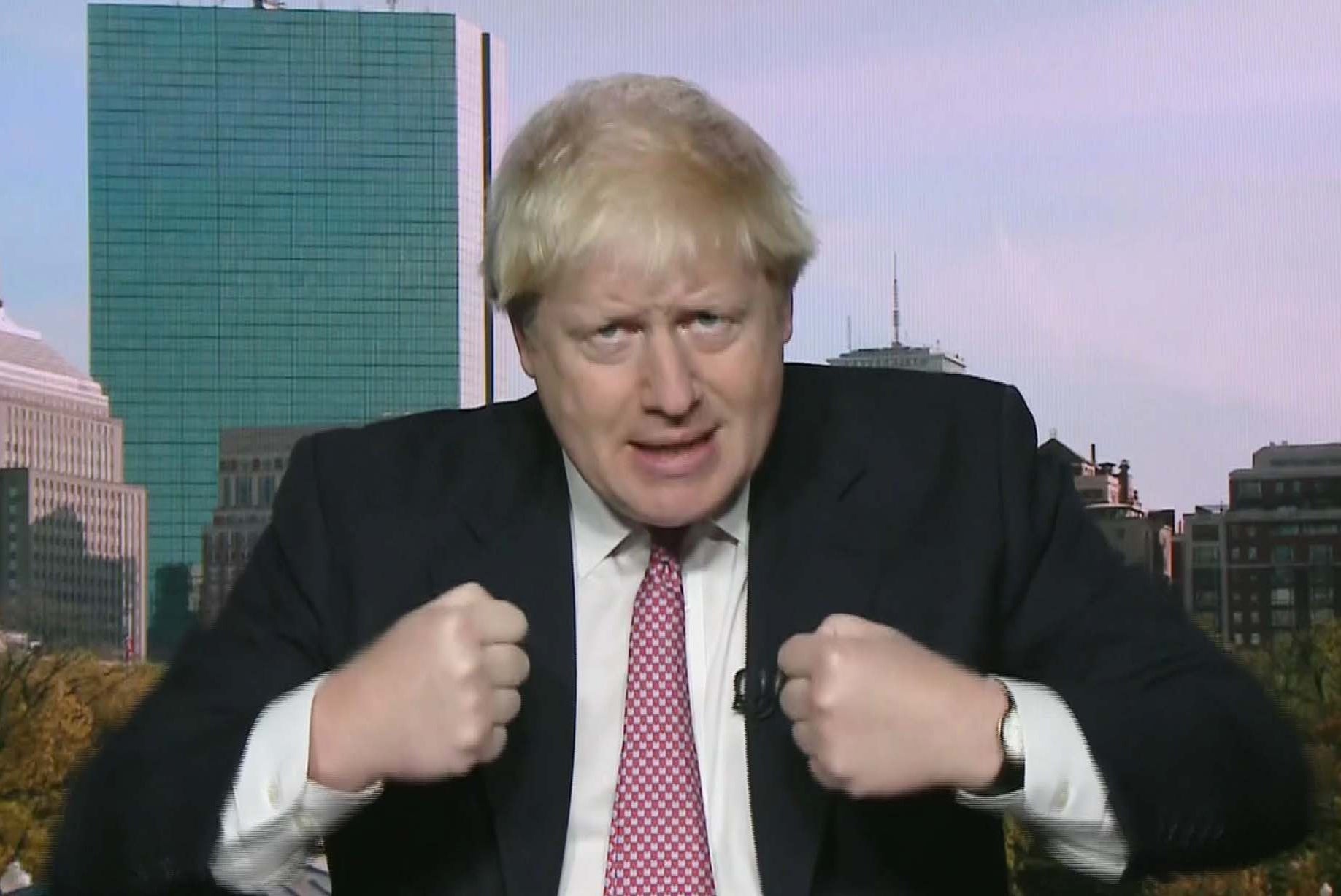The 31 most competitive countries in the world

Your support helps us to tell the story
From reproductive rights to climate change to Big Tech, The Independent is on the ground when the story is developing. Whether it's investigating the financials of Elon Musk's pro-Trump PAC or producing our latest documentary, 'The A Word', which shines a light on the American women fighting for reproductive rights, we know how important it is to parse out the facts from the messaging.
At such a critical moment in US history, we need reporters on the ground. Your donation allows us to keep sending journalists to speak to both sides of the story.
The Independent is trusted by Americans across the entire political spectrum. And unlike many other quality news outlets, we choose not to lock Americans out of our reporting and analysis with paywalls. We believe quality journalism should be available to everyone, paid for by those who can afford it.
Your support makes all the difference.Every year, the World Economic Forum releases its Global Competitiveness Report on the state of the world's economies.
The WEF looks at data on areas as varied as the soundness of banks to the sophistication of businesses in each country. It then uses the data to compile a picture of the economy of almost every country on earth.
Countries were ranked according to the “12 pillars of competitiveness,” which includes macro-economic environment, infrastructure, health and primary education, and labour market efficiency.
This year, the UK moved up three places to become the 7th most competitive economy in the world — but Brexit could threaten this as WEF says “our analysis suggests there is more downside risk from Brexit than there is upside when it comes to the competitiveness of the UK economy.”
There was also a bit of change at the top of the rankings for this years 2016-2017 rankings.
Take a look at the top 31. The numbers cited is the overall ranking given by WEF:
31. Czech Republic — 4.72. WEF says inefficient government bureaucracy and tax regulations hold the country back from a higher ranking.
30. Estonia — 4.78. The country retains its position at 30 as it continues to be one of the most innovative economies in the world.

29. Saudi Arabia — 4.84. WEF says the country slipped four places in the rankings “mainly as a result of a deteriorating macroeconomic environment following the drop in energy prices.” However it noted that the country has unveiled an ambitious plan to diversify the economy.

28. China — 4.95. The country stays at 28th for the third year in a row even though its overall score has actually improved, thanks to improvements in higher education, innovation, and business sophistication.
27. Iceland — 4.96. Iceland is “among the advanced countries where the future workforce is expected to be better equipped than current workers,” says WEF. This means the country will have a secure standing as one of the most competitive countries in the world.
26. South Korea — 5.03. WEF says that “building on healthy public finances, the country improves two places to a remarkable 3rd rank (behind Norway and Qatar) in the macroeconomic environment pillar.
25. Malaysia — 5.16. “Among emerging economies, Malaysia continues to lead the region, despite losing some ground this year following six years of improvement,” says WEF. It noted that the country needs to improving governance and tackle corruption.
T=23. Israel — 5.18. Israel moved up three positions as it “continues to build on its positioning as one of the most innovative economies in the world.”

T=23. Ireland — 5.18. Inadequate supply of infrastructure and tax rates stops Ireland moving up further.
22. Australia — 5.19. WEF notes that the country's “performance is stable compared with the previous edition and remarkably consistent yet never stellar.” It says that Australia needs to improve its innovation and business sophistication in order to rise up the ranking.
T=20. France — 5.20. The country moved up one place, thanks to its improvement in the innovation and sophistication subindex. WEF also noted that an improvement in the macroeconomic environment helped boost its position although it is still “weak.”

T=20. Luxembourg — 5.20. The country may be one of the most wealthy in the world but its lack of innovation and issues with employment — restrictive labour regulations and an inadequate educated workforce — hurt its position in the ranking.
19. Austria — 5.22. While the country achieves a solid score, WEF data shows that it needs to relax its restrictive labour regulations if it is to climb up the rankings.
18. Qatar — 5.23. Like its cousins in the Middle East, Qatar's macroeconomic conditions, brought on by low prices, impacts its ability to rise up the charts this year.
17. Belgium — 5.25. The country scores highly across many pillars but onerous tax conditions pulls Belgium down the rankings. Tax rates and regulations are said to be particularly problematic for doing business there.
16. United Arab Emirates — 5.26. While the UAE made “small gains in areas such as technological adoption and business sophistication,” WEF says that a deteriorating macroeconomic environment brought on by low oil prices pulls it down the rankings.
15. Canada — 5.27. The country improved its technological readiness, health and primary education,and labour market efficiency but WEF says it was let down by “a continuing downward trend in innovation, business sophistication, financial market development, infrastructure, and goods market efficiency.”

14. Chinese Taipei (Taiwan) — 5.28. While Taiwan achieves a decent overall score, WEF notes that the problematic factors for doing business there include policy instability, insufficient capacity to innovate, and inefficient government bureaucracy.
13. New Zealand — 5.31. WEF says the country “ranks better for business dynamism than it does for innovation capacity,” which is why it hits near the top of the charts, but no quite.
12. Denmark — 5.35. The country ranks high in the charts as it has “the most sustainable system” when it comes to education and skills. WEF says it is notable that Denmark “is one of the first countries to include computer science in its primary-school curriculum,” which will serve long the economy in the long-term.
T=10. Norway — 5.44. The country moves up the rankings, thanks to its high scores in higher education and training, as well as labour market efficiency, and financial market development.

T=10. Finland — 5.44. The country dropped two places in the rankings due to “the fall of exports to Russia and the drop in demand for paper and electronic exports.” WEF says this was enough to give a negative impact on its economy and push it down the rankings.
T=8. Hong Kong SAR (Special Administrative Region of China)— 5.48. WEF says Hong Kong “is highly competitive, efficient, and one of the most open in the world” and that its labour market “is among the world’s most flexible and efficient (3rd worldwide).”
T=8. Japan — 5.48. The country falls down the list by two places due to its macroeconomic environment. WEF notes that while the budget deficit is lower than last year, it is “still very, large.”
7. The United Kingdom — 5.49. While the UK moved up the ranking by three places, WEF warns that the data was collected before Britain voted to leave the European Union on June 23. “So initial repercussions from the vote are not captured by this year’s Index. Although the process and the conditions of Brexit are still unknown, it is likely to have a negative impact on the United Kingdom’s competitiveness through goods and financial markets as well as market size and, potentially, innovation,” says WEF.

6. Sweden — 5.53. The country moved up three places, thanks to “improvements in the basic factors of competitiveness, especially the macroeconomic environment.”
T=4. Germany — 5.57. The country drops one place in the rankings because even though “its macroeconomic environment is generally stable, with a very low government deficit, yet—like the rest of the euro zone— it faces near-zero inflation.”
T=4. The Netherlands — 5.57. The country moves up the ranking again this year after it boosted its score through “small improvements across all three subindexes, with a solid and even performance across the pillars including top 10 ranks for infrastructure, health and primary education, higher education and training, goods market efficiency, technological readiness, business sophistication, and innovation,” says WEF.
3. United States — 5.70. A stable macroeconomic situation and a falling budget deficit keeps the powerful economy near the top spot. “The position of the United States is driven by innovation, business sophistication, market size, financial market development, labor market efficiency, and higher education and training,” says WEF.

2. Singapore — 5.72. The island nation stays 2nd for the sixth year in a row. While it smashes all the other sub-indexes, WEF notes that it needs to improve its score across business sophistication and innovation, if it wants to be number one.
1. Switzerland — 5.81. Not only did Switzerland retain its poll position, it achieved a higher score than it had in previous years. WEF says that the country not only features in the top 10 of 11 pillars, it actually tops four of them: labour market efficiency, business sophistication, innovation, and technological readiness.
Read more:
• This chart is easy to interpret: It says we're screwed
• How Uber became the world's most valuable startup
• These 4 things could trigger the next crisis in Europe
Read the original article on Business Insider UK. © 2016. Follow Business Insider UK on Twitter.
Join our commenting forum
Join thought-provoking conversations, follow other Independent readers and see their replies
Comments